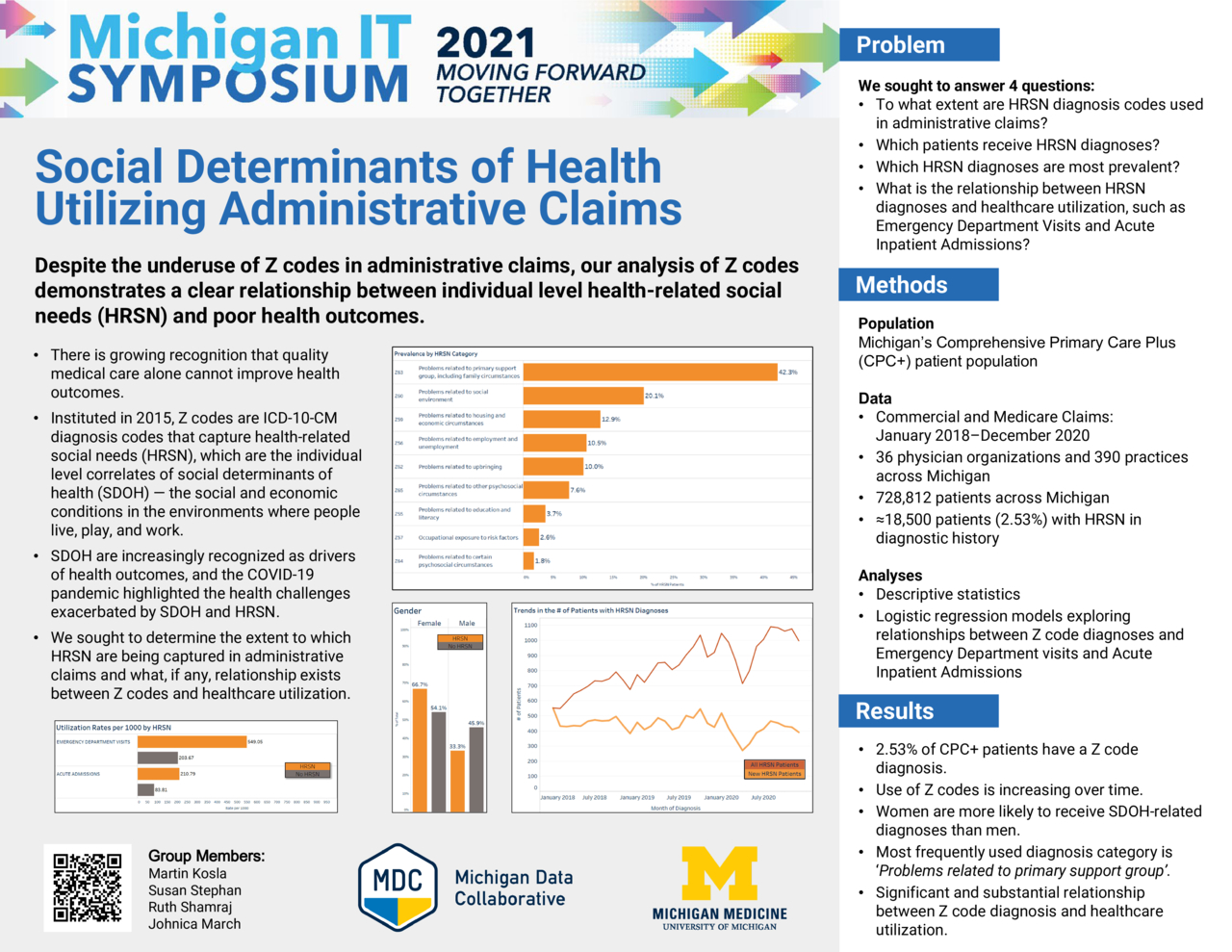Abstract
The Michigan Data Collaborative is a nonprofit healthcare data organization at the University of Michigan. We support care delivery transformation initiatives across the state, providing multi-payer data collection, aggregation, measure calculations, and visualization/reporting.
During the pandemic, our team moved to working 100% remotely but that did not inhibit our ability to produce focused analytics for our partners. Social determinants of health (SDOH) have long been recognized as drivers of health and health outcomes and the COVID-19 pandemic highlighted the health challenges exacerbated by SDOH. With the adoption of ICD-10-CM diagnosis codes, health-related social needs (HRSN) can now be captured, tracked, and analyzed within patient populations using administrative claims through Z codes.
We analyzed the prevalence of Z code use and their association with health outcomes across a variety of large administrative and claims datasets, including from the Healthcare Cost and Utilization Project (HCUP) and Michigan’s Comprehensive Primary Care Plus (CPC+) initiative.
Despite the low initial usage of Z codes, the number of claims and patients with a Z code diagnosis has been increasing over time. Even considering their underuse, our findings from across these datasets highlight a clear relationship between HRSN and poor health and health outcomes.

